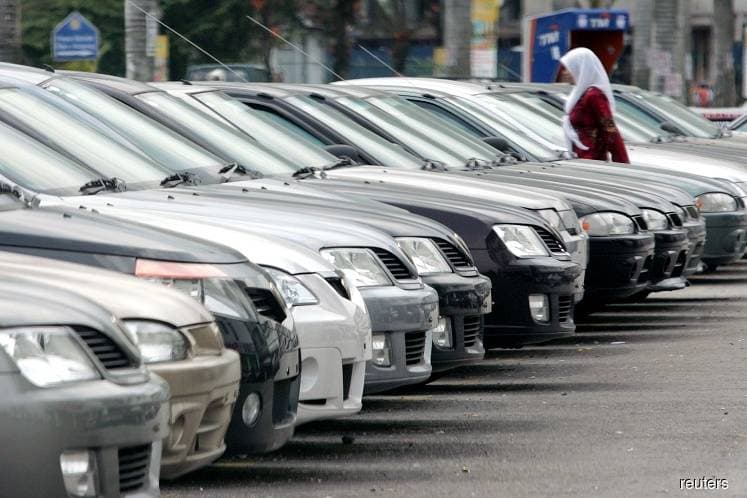
KUALA LUMPUR (June 9): While total industry volume (TIV) for the auto sector is expected to rise following sales tax exemption on locally assembled or completely knocked-down units and a 50% reduction in the sales tax for imported units of completely built-up units, the projected rise in demand will not be as strong as the uptick in demand for cars following the abolishment of the goods and services tax (GST) and ensuing tax holiday two years ago.
In a note, AffinHwang Capital Research's Brian Yeoh said he does not discount that the new tax arrangement, lower higher purchase loan rates and cheaper oil prices may be tempting factors for new-car buyers.
That said, a challenging economic environment entailing higher unemployment and lower disposable income due to pay cuts will see Malaysian consumers deferring purchases of big-ticket items like cars.
"We think Malaysians may even consider commuting with the MY30 unlimited travel pass to cope with economic shock. Furthermore, we sense that many Malaysians are adapting to the work-from-home setting, hence cars may not be perceived as a necessity in the coming months," said Yeoh, who has upgraded the auto and auto parts sector to "neutral", from "underweight" previously.
In terms of TIV forecasts, Yeoh maintains his forecast of 485,000 units (which is down 20% year-on-year [y-o-y] from 2019's 604,000 units), noting that the sales tax exemptions should limit the sharp contraction in sales seen in April's year-to-date (YTD) TIV figures.
Meanwhile, AllianceDBS Research's Abdul Azim Muhthar noted that unlike the previous three-month tax holiday in 2018, he does not expect a robust sales growth this time around, as consumers may continue to remain cautious about spending on big-ticket items such as cars due to the economic slowdown. Consequently, he is only raising his 2020 TIV assumption by 5% to 420,000 units — which is still 30% down on a y-o-y basis.
"At the moment, the YTD TIV as of end-April stood at 107,000 units. We expect sales to gradually pick up, especially towards December as customers might prefer to wait for the Covid-19 situation to ease and capitalise on the tax incentives together with year-end campaigns," he opined in a note.
As far as MIDF Research's Hafriz Hezry is concerned, the government's decision is enough for it to raise his 2020 TIV forecast to 554,433 units, from 504,580 units previously. He noted that as a result, 2020's TIV is expected to now contract by 8.3% y-o-y, from the 16.5% y-o-y previously forecast.
As a yardstick, the three-month tax holiday in 2018 saw monthly TIV rise by 32% y-o-y, or in absolute terms, about 21,000 units a month against the pre-tax-holiday monthly TIV.
"In comparison, our revised FY20F projections imply a relatively conservative 7,800 units/month incremental TIV over the tax holiday period. The much longer 6.5-month implementation should give the sector sufficient support to ride through the weak second half of 2020 (2H20) before an expected underlying macro improvement sets in towards end-4Q20 (fourth quarter of 2020) or early FY21F," he said in a note today.
CGS-CIMB Research's Mohd Shanaz Noor Azam, while also concurring that sales improvement will be marginal against two years ago, also pointed out stricter lending requirements, which could be an obstacle for car purchases.
"We think sales improvement will only be marginal compared to the GST-free period two years ago given the different economic situations; 2020F is faced with a potential rise in unemployment rate and strict lending requirements from financial institutions as banks are gradually reducing exposure in hire purchase loans. Moreover, Malaysia already has one of the highest motorisation rates in Southeast Asia," he said in a note.
Mohd Shanaz, who has a neutral call on the auto sector, raises his 2020 TIV forecast to 500,000 units, from 490,000 units, to reflect higher sales forecast for non-national car brands rising to 205,000 from 190,000 previously.
The higher TIV forecast implies an average monthly TIV of 56,000 units over June to December 2020, with a 17% y-o-y decline projected for 2020's TIV.